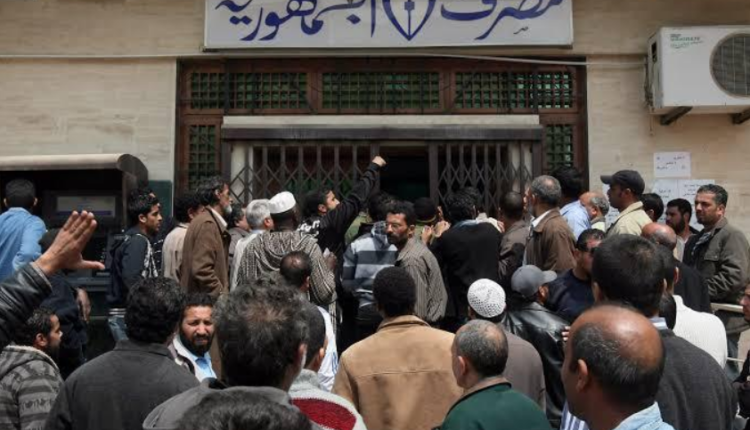Crowds in Tripoli camping out overnight in front of banks
After months of waiting, men and women alike stayed overnight to receive overdo payments

Libyan citizens expressed their contempt and unhappiness at the lack of the liquidity in the banks for such an extended period and that officials in charge are too busy disputing over power and influence to serve the people and tend to the average citizen’s basic needs.
Most of the banks were only allowed to withdraw 500 Libyan dinars per person, with a source telling Libyan Express that Jumhouria Bank’s main branch in Tripoli today was allowed to withdraw up to 1000 dinars per person, an amount people still complained was too small after such a long period, causing many to go into debt to meet daily living expenses.
The same source inside the Jumhoria Bank’s main branch tells Libyan Express that the crowds were out of control and that men and women alike were camped out in front of the bank in droves overnight waiting for their turns after waiting over three months.
The source also told Libyan Express that citizens expressed their outrage at the withdrawal limit, blaming them for the limited amount but that they were only following instructions so the funds made available can be distributed to as many people in need as possible.
Eyewitnesses confirmed that the state of overcrowding in front of the bank violated every social distancing measure against Covid-19, with people pressed together and large numbers of citizens either not wearing masks or growing frustrated and taking them off after the long wait in the line.
Citizens demanded repeatedly that those in power assume their responsibilities, consider the average person’s plight and perform their duties by putting differences and personal gain aside to reach an agreement to finally end one of the worst economical disasters the country had ever seen.
A blockade of oil exports by Haftar forces since January was lifted last month and revenue is gradually starting to flow back into the country, but it cost Libya more than $10 billion in lost income. Oil receipts are paid into the Tripoli-based Central Bank of Libya, which then pays salaries of most state employees across front lines including in areas held by Haftar forces.
How to submit an Op-Ed: Libyan Express accepts opinion articles on a wide range of topics. Submissions may be sent to oped@libyanexpress.com. Please include ‘Op-Ed’ in the subject line.
- Haftar to fly to the US with family, pretending it’s a Libyan official visit - September 13, 2021
- Haftar hires ex-Clinton aide, ex-Republican leader to lobby Washington for Libya elections’ run - September 09, 2021
- Al-Saadi Gaddafi, late dictator’s son, released from Libyan prison - September 06, 2021


